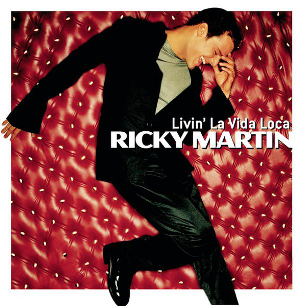 | Riders in the Sky (A Cowboy Legend)Vaughn Monroe |
Writer(s): Stan Jones (see lyrics here) First Charted: April 23, 1949 Peak: 112 US, 12 GA, 12 HP, 15 AU (Click for codes to singles charts.) Sales (in millions): 1.0 US Airplay/Streaming (in millions): -- radio, 2.5 video, -- streaming |
Awards: (Click on award for more details). |
About the Song: Stan Jones was a forest ranger who wrote songs on the side. SF He wrote this “country and cowboy-style song” WK in the summer of 1948 based on a story he’d heard at 12-years old by an old cowboy friend. WK The following year, the song gave the charts “a rustic, outdoors bias.” TY Vaughn Monroe (#1), Peggy Lee (#2), Bing Crosby (#14), and Burl Ives (#21) all charted with versions of the song on the U.S. pop charts. PM Monroe’s version wasn’t just a #1, but the the biggest pop song of 1949 WHC and the biggest of Monroe’s nine chart toppers. It was also one of three songs of his to sell a million copies. PM The song serves up a “folk tale” WK of “cowboy hell.” SF A cowboy has a vision of “a herd of red-eyed cows” TY “thundering across the sky, being chased by the spirits of damned cowboys. One warns him that if he does not change his ways, he will be doomed to join them,” WK “doomed to chase the Devil’s cattle for all eternity.” SF The song, which is also sometimes known as “Ghost Riders in the Sky,” “Ghost Riders,” and “A Cowboy Legend” has been recorded at least 50 times by artists including Johnny Cash, Spike Jones, Frankie Laine, and Marty Robbins. WK Gene Autry sang it in the movie of the same name in 1949. WK Jones recorded it on his own 1957 album Creakin’ Leather. WK Through the ‘60s, ‘70s, and ‘80s, other versions by the Ramrods, Lawrence Welk, the Baja Marimba Band, the Outlaws, and Duane Eddy also charted. The Ramrods top-40 instrumental-version was the highest charting. “The melody is based on the song ‘When Johnny Comes Marching Home,’” WK and, “according to Robby Krieger, it inspired the classic Doors song ‘Riders on the Storm.’” WK It also inspired the Marvel Comics Western character Ghost Rider who was later renamed Phantom Rider. WK Resources and Related Links:
Last updated 9/8/2021. |










